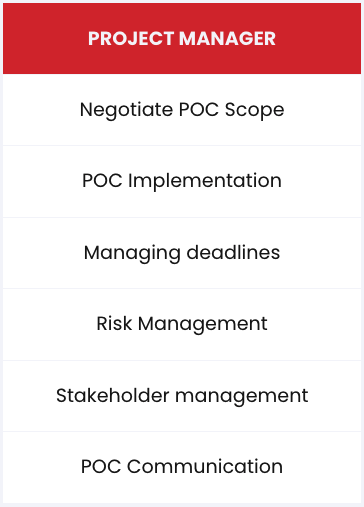Sales engineers (SEs) bridge the gap between sales and product development by having valuable product-related conversations with their customers. This helps them show the real value of the product and convince potential prospects to buy their product. A sales engineer expertise in assisting the sales process of a technologically advanced product by combining technical knowledge and sales skills. In this way, it is easier for them to respond to client’s queries. Sales engineers work with clients from various industries belonging to different domains such as research and development, design, purchase, manufacture and distribution. The following are some of the essential skills needed for a successful sales engineer.

The technical knowledge of a sales engineer aids them to explain the product, its features, functionality, integration points and why their product is better than their competitors in a holistic manner. It helps them to address their client’s query with confidence, therefore, increasing the sales and achieving their targets. This comprehensive technical expertise builds credibility, loyalty, trust and commitment of a client aiding in presales engineering. When a sales engineer is selling a software product to a b2b client with no technical knowledge, they need to brief the client in a relatable and easy-to-understand manner helping them to understand and feel empowered.
Through the risk analysis process, SE’s try to discover the pain points of a business that makes them seek a solution. Sales Engagements can go from weeks to months, and with multiple people involved, project risks are imminent. Sales Engineers keep a close track of Proof of Concept activities, and keep assessing the risks. Once the risk is identified, SEs work with their team and Account Executives to mitigate it.
Sales Engineers use Success platform for staying top of their POCs and have continuous visibility. This helps in identifying the Risks early on in the POC cycle.
Market research is a great resource for SEs to understand a client’s business with objectives to interact and understand their problem to figure how they can utilize this information in their value selling approach. This in-depth research allows them to understand the pros and cons of their competitors. SE’s can handle the risks of a proof of concept (POCs) by identifying, evaluating and developing a risk mitigation plan. The SEs team mitigates the risk by using Risk avoidance, Risk sharing, Risk reduction, Risk transfer and Risk acceptance.
A sales engineer has the ability to investigate a situation and determine its key elements to find an ideal solution in a timely and efficient manner. The analytical skills are used to brainstorm, detect patterns, interpret data, observe, theorize, integrate new information, and make decisions based on the multiple factors and options available. The solutions are finally achieved by methodical approaches and creative techniques. There are different types of analytical skills such as communication, creativity, research, critical thinking and data analysis.
The problem-solving skills of a sales engineer assists in determining why an issue is happening and how to resolve that issue. It follows a four-step approach such as
These skills make a sales engineer be solution-oriented and on the lookout for ways to make their product more appealing.
Project management is one of the core responsibilities of sales engineers. Project Management is incorporated in all the 3Cs of the Sales lifecycle.

Sales engineers focus on customer needs and assist them throughout the sales process by understanding how enterprise sales work with different skills. The 3 Hats of Sales Engineers are Sales, Project Manager and Subject Matter Expert (SME).
Sales engineers are sales focused and customer oriented. They work with customers on product demos, perform POCs, show the value of their product to the prospects and convince them with benefits of the product. As a project manager, SEs ensures to keep the POCs on track, the associated tasks and maintain the plans up to date. They aim to recruit and assign the right team to keep the project focused for on-time delivery and meet deadlines. As Subject Matter Expert (SME), Sales Engineers help the customer with any product or technology related questions. They become the go-to person for any product questions. They also help product team to understand the areas of improvements, validate the feature requests and deliverables.
A sales engineer often teams up with an account executive or a regional sales manager. SE’s role is to provide pre-sales discovery, technical assistance, product demos, and meeting client requirements whereas the AE’s role is to work, build and manage business relationships with clients. The SEs assist the business by marketing, liaising with other technical and sales experts, persuading clients who could benefit from their products through product presentations, demos and Proof of Concepts and technical wins.
Sales Engineering is a fast-growing field with remarkable job opportunities. It is an ever-evolving field where learning never ends. The new technologies keep a sales engineer curious and always learning. Since this is a vast topic, we were unable to put the entirety of sales engineering skills within a single blog. We will dive deep into the remaining 5 skills of a sales engineer in the next blog.

If you’re in sales, you’ve probably heard of sales enablement. The term and process are growing in the industry, and for good reason. Sales enablement has a strong success rate when it comes to increasing win rates by equipping sales professionals with the right tools. Companies that put a strategy in place will see positive..

When demos are considered as one of the best ways to sell your product, they can also be a source of stress. There are certain things to make sure the demo goes off without a hitch. A demo that looks and feels professional shows your audience that you take them seriously, and will therefore be..